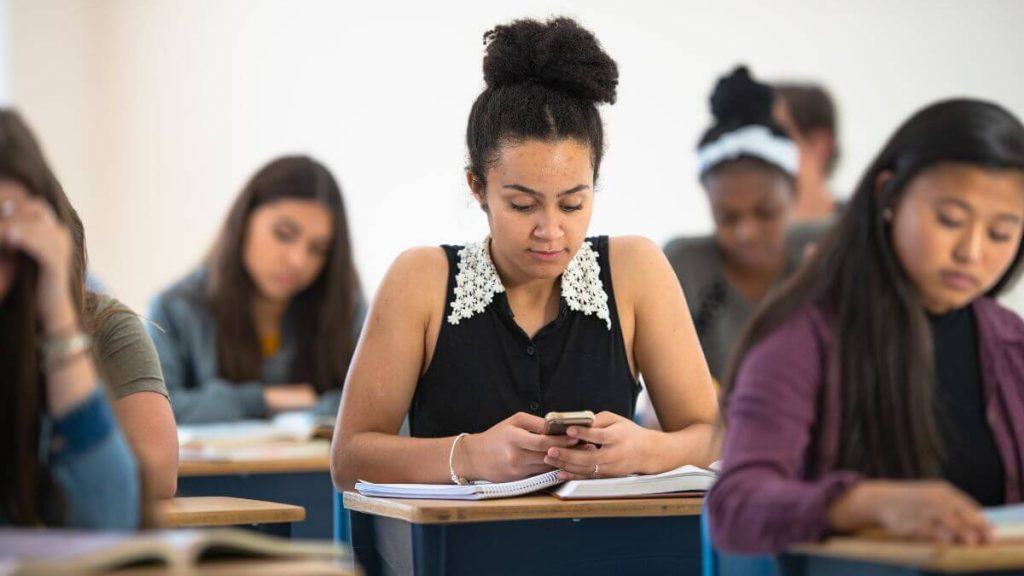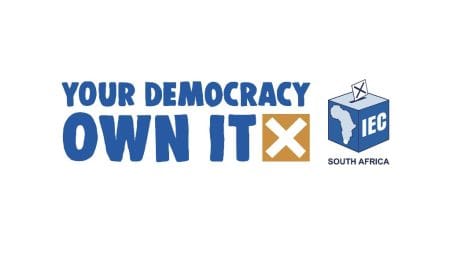UNISA Application Dates are crucial for every prospective student planning to start their higher education journey in 2026. Missing these deadlines can delay your studies by an entire year, as UNISA strictly enforces its application windows. With thousands of South Africans applying each year for undergraduate, honours, postgraduate, master’s, and doctoral programmes, understanding exactly when to apply is essential.
This guide provides a clear, step-by-step breakdown of the 2026 UNISA application schedule, including main application periods, second-semester and late application possibilities, consequences of missing deadlines, and practical tips to prepare your documents in advance.
Note: All dates below are based on UNISA’s official schedules. However, UNISA reserves the right to adjust timelines; always double-check closer to the time.
Official Application Window for 2026 (Undergraduate, Honours, Postgraduate Diploma)
Undergraduate Qualifications
Opening date: 18 August 2025
Closing date: 10 October 2025
This window applies to all new applications for undergraduate-level programmes, including:
Higher Certificates
Diplomas
Advanced Diplomas
Bachelor’s degrees
Everyone wishing to start a new qualification (or change specialisation) must apply within this period.
Honours Degrees & Postgraduate Diplomas
Opening date: 18 August 2025
Closing date: 10 October 2025
If you already have a bachelor’s degree (or equivalent) and wish to apply for honours or a postgraduate diploma through UNISA, this is the same application window as for undergraduate programmes.
Notes & Caveats for These Levels
Applications must be submitted online only; there are no self-help counters during the application window.
Only complete applications (all required documents uploaded + application fee paid) will be processed.
For international applicants or those who obtained qualifications outside South Africa, SAQA evaluation may be required.
The closing date for honours/postgraduate diploma applications is final; late submissions are not accepted.
Master’s & Doctoral (Postgraduate Research) Application Window
Applications for master’s and doctoral degrees follow a different schedule:
Opening date: 2 September 2025
Closing date: 21 November 2025
Important points to note:
Applicants may apply for only one master’s or doctoral qualification in a given cycle. Submitting a second replaces the first.
The process typically involves:
Obtaining a Unisa student number (if you don’t already have one)
Submitting the admission application
Uploading all compulsory supporting documents (ID/passport, academic transcripts, research outline, SAQA evaluation if needed)
Applicants with foreign qualifications must upload SAQA evaluation documents at the time of application or soon after acceptance.
The registration window for master’s/doctoral degrees is 9 January to 31 March 2026, with exceptions (e.g. MCompt, MBA, MBL, DBL) closing end-of-January.
Some departments may advertise “exceptional” or alternate deadlines, especially for limited quotas or professional programmes. Always check your department’s website.
Second-Semester / Late Application Periods
While the above windows are considered the main application opportunities, UNISA occasionally allows second-semester or late applications under specific conditions. However, those windows are typically more restricted and subject to space availability.
Second Semester Applications
UNISA has in past years opened mid-year application windows (for the second semester), especially for undergraduate and honours qualifications.
As of now, official 2026 second-semester application dates have not been published.
If permitted, second-semester applications are usually limited to select programmes that still have open slots.
Always monitor UNISA’s website or contact the admissions office to know whether second-semester windows open.
Late Applications
Generally, late applications are not accepted once the official closing date passes, especially at undergraduate and honours levels.
Exceptionally, some master’s or doctoral offerings or special programmes might still accept late or extended applications if space remains, but this is rare and at the department’s discretion.
In all cases, if late applications are even considered, they are processed only if the space is available; meeting the qualification does not guarantee acceptance.
Key Dates in Context & Related Milestones
Understanding the application dates is one part; knowing what happens before and after is equally important.
| Timeline / Phase | What Happens | What You Need to Do |
|---|---|---|
| Pre-application | Prepare documents, check requirements, plan programme choices | Gather certified copies, check APS, plan which qualifications you’ll apply for |
| Application Window (Aug–Oct; Sept–Nov) | Submit application, upload documents, pay fee | Complete everything before the closing date |
| Offer / Selection period | UNISA assesses applications, issues offers | Monitor your email / myUnisa portal, accept or decline offers |
| Acceptance deadline | You must accept or decline UNISA’s offer | Usually within 10 working days, or offer is withdrawn |
| Registration period | Register for the modules you will study | This happens early the next academic cycle; for masters/doctoral: Jan–Mar 2026 |
| Late / second-semester (if available) | Only open if UNISA announces them and space is available | Keep checking UNISA notices from departments |
Acceptance of Offer & Impact
Once UNISA makes you an offer:
You must accept or decline it within the prescribed period (typically 10 working days) or risk losing the spot.
If you accept one offer, any other offers you might have will automatically lapse.
After acceptance, you’ll proceed to register for the modules/seminars for that semester/academic year. If you fail to register, you often have to reapply in the next cycle.
What Happens If You Miss the Deadline?
Missing the official closing date can be deeply frustrating—but here’s what to watch out for and what fallback strategies you may have:
Risks & Consequences
Automatic disqualification – Most incomplete or late applications are simply not considered.
Loss of preferred qualification – If your first (or preferred) programme is full, you may lose access to it.
Delay your academic year – You might have to wait until the next cycle to apply again.
Limited recourse – Because space is limited, departments will not typically accept late submissions unless under exceptional allowances.
Possible Options
Check for second-semester opening – In some years, UNISA opens mid-year windows; see whether your programme is eligible.
Contact the admissions office or department – Occasionally, departments may extend deadlines if there is still capacity. Always ask (but don’t rely on this).
Apply via Recognition of Prior Learning (RPL) – If you don’t meet the normal entry route, RPL might enable alternative admission, but the application for RPL must still follow deadlines.
Consider alternative institutions or programmes – If UNISA is no longer open for you this year, look at other universities or TVET options.
Also check: UNISA Application Fee 2026: How Much It Is & How to Pay
Preparation Tips: How to Stay Ahead
To maximize your chances of a smooth and successful application, follow these tips:
1. Make a calendar or reminders now
Mark the opening and closing dates in your phone, planner, and calendar app. Set reminders one month, two weeks, and two days before each deadline.
2. Gather and certify required documents early
Typical requirements include:
Certified copy of your ID or passport
National Senior Certificate / matric results
Academic transcripts (if applying for postgraduate)
Proof of payment for the application fee
For foreign qualifications: SAQA evaluation
For postgraduate: Research proposal, supervisor approval, etc.
Note: UNISA requires scanned documents in black-and-white, each file ≤ 2 MB (PDF, DOC, or TIF).
3. Check admission requirements & APS early
Don’t wait until the last minute. Ensure you know your Admission Point Score (APS) thresholds for your chosen qualification and whether you meet any subject prerequisites.
4. Decide your top 2–3 qualifications in advance
You may apply to multiple qualifications (for undergraduate) but can only register for one. Rank your preferences based on eligibility, demand, and backup options.
5. Complete as much of the application beforehand
Login to the application portal early, fill in fields, and verify your email. Only final submission needs to wait.
6. Upload documents ahead, but do final checks
You can prepare your uploads in advance, but submit early to avoid system congestion at the end. Double-check each file for legibility, correct size, and correct naming.
7. Monitor your email/myUnisa portal diligently
Most communications—including offers, requests for documents, or acceptance deadlines—will be sent via email or through your myUnisa / myLife email account. Make sure you activate and regularly check those accounts.
8. Have backup internet / alternative devices
Internet outages, computer problems, or system load can strike at critical moments. Be ready with backups (mobile network, library PC, etc.).
9. Be ready for acceptance and registration
If you get an offer, accept it promptly (within the allowed window). Then make sure you register during the registration window. Missing registration can mean losing your place.
10. Note special programmes’ deadlines
Some programmes, especially those in the Graduate School of Business Leadership (GSBL), or limited research degrees, may have slightly different deadlines. Always check your faculty’s website.
Also check: How to Apply for NSFAS 2026: Step-by-Step Guide
Frequently Asked Questions (FAQs)
1. When do UNISA applications for 2026 open?
Applications for undergraduate, honours, and postgraduate diplomas open on 1 September 2025.
2. What is the closing date for UNISA 2026 applications?
The deadline is 15 October 2025 for undergraduates, honours, and postgraduate diplomas. Master’s and doctoral applications close on 14 November 2025.
3. Will there be late applications for 2026?
Possibly, but it is not guaranteed. If available, late applications are limited and only for qualifications with space.
4. Can I apply for second semester at UNISA in 2026?
Yes, but only for selected programmes. The second-semester application period is expected in April/May 2026.
5. What documents do I need to apply to UNISA?
You’ll need a certified copy of your matric certificate, ID, proof of residence, and any previous academic records.
6. How much is the application fee?
UNISA charges a small non-refundable application fee, payable during the submission process.
7. What if I miss the deadline?
Your options include waiting for the second semester (if available), checking for late applications, or applying in the next cycle.
8. How will I know if my application is successful?
UNISA communicates application outcomes via email and your myUnisa portal. Notifications typically occur between November 2025 and January 2026.
9. Can international students apply during the same windows?
Yes, international applicants follow the same opening and closing dates but must also provide SAQA evaluations for foreign qualifications.
10. When can I register once my application is accepted?
Registration for Semester 1 generally runs from January to February 2026, and second-semester registration (if applicable) is usually June/July 2026.
Here’s a recap of the key dates for UNISA 2026 applications:
Undergraduate / Honours / Postgraduate Diploma: 18 August 2025 – 10 October 2025
Master’s & Doctoral: 2 September 2025 – 21 November 2025
If you’re planning to apply to UNISA in 2026, now is the time to diarise those dates, begin preparing your documents, and set reminders. Failing to apply on time often means waiting a full year to try again.










